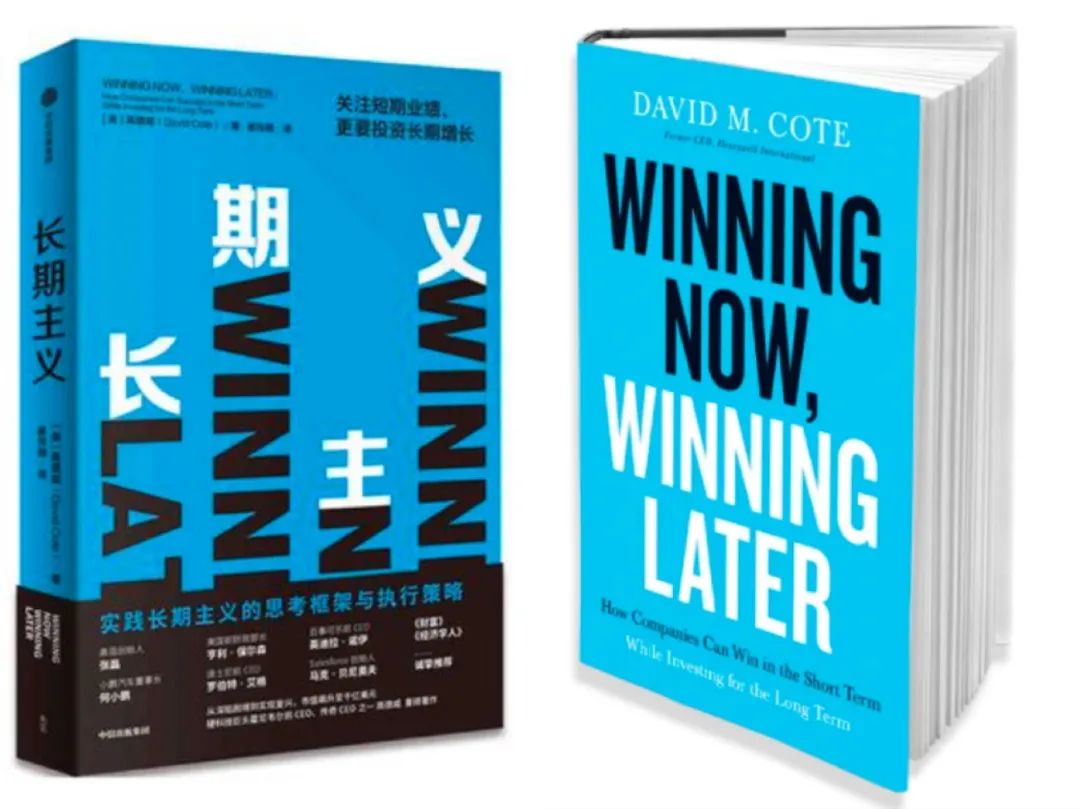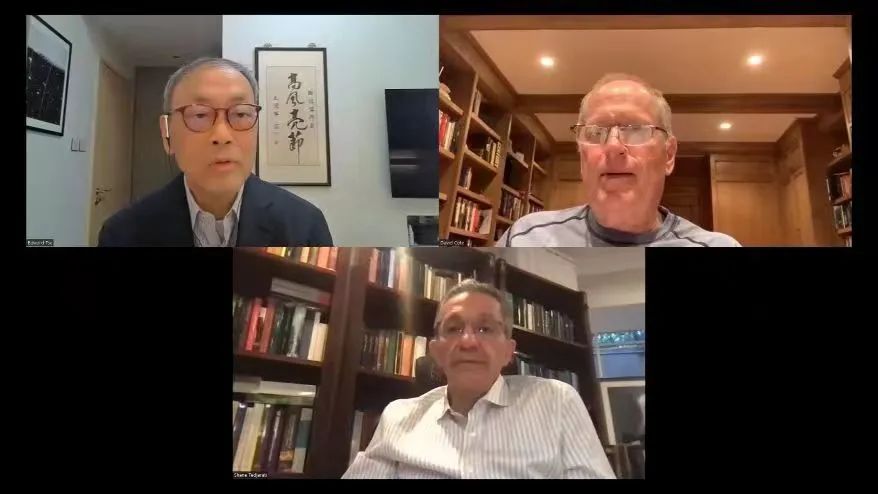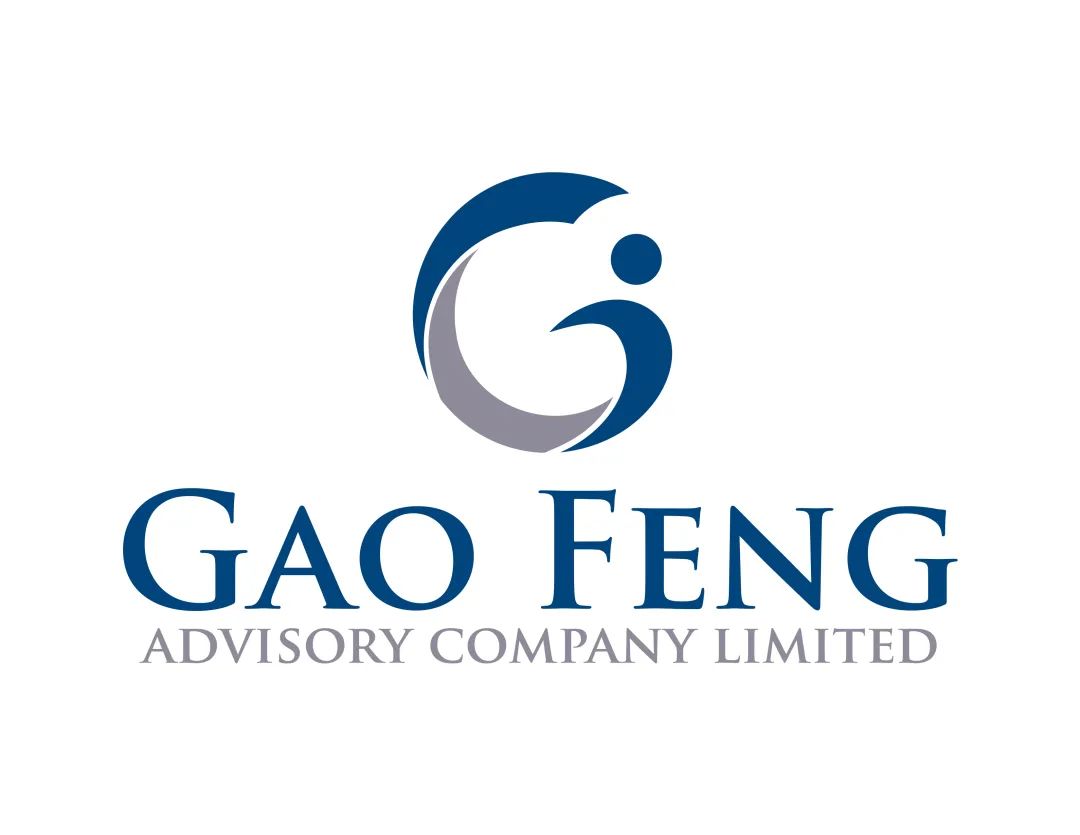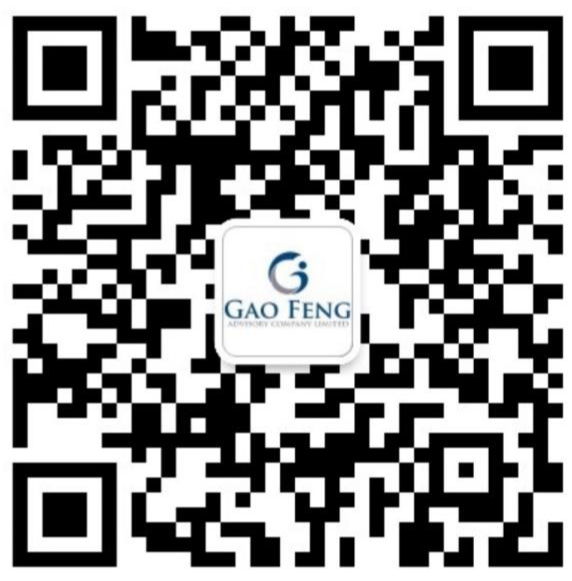Panel Discussion | Winning Now, Winning Later
Winning Now, Winning Later: Turning Around Honeywell and Achieving Success in China

Panel Discussion with David M. Cote and Shane Tedjarati, hosted by Edward Tse
Global Master Lecture
Cheung Kong Graduate School of Business

Preface
On 24 April 2022, I anchored the Global Master Lecture at the Cheung Kong Graduate School of Business (CKGSB) with two very distinguished guests – David M. Cote, retired Chairman & CEO of Honeywell and Shane Tedjarati, and retired President & CEO of Honeywell’s Global High Growth Regions. Drawing inferences from key contents of Dave’s 2020 book, Winning Now, Winning Later and its 2021 Chinese edition《长期主义》, we discussed how under their leadership, Honeywell went on from being a rather dysfunctional company to become one of the most successful brands in the S&P 500 and how it generated incredible value for its shareholders. Honeywell had a tiny presence in China two decades ago and these leaders successfully transformed it into the company’s second largest market and the largest value contributor globally in less than two decades.
Dave’s book and Shane’s preface to its Chinese edition clearly explain that Dave and Shane weren’t following and executing strategies randomly. They had formulated a carefully thought out process and strategy framework. Dave and Shane shared their thoughts and principles on leadership and management during the lecture. The participants reacted very well to their insights and asked a number of meaningful and penetrating questions. It’s this kind of knowledge and experience sharing that can help advance the frontier of thought leadership for doing business on a global basis.
I have summarized the key parts of our two-hour long conversation in the following.
Edward Tse (hereinafter Ed): Dave, I think the core philosophy you laid out in your book is that it is actually possible for managers to achieve short-term results and simultaneously also build the foundation for future growth. How did that work?
David M. Cote (hereinafter Dave): It's actually a subset of a bigger philosophy that I adopted 30 years ago. Now, I refer to it as accomplishing two seemingly conflicting things at the same time. What you find is whatever goal you're setting, there's something else also that's implicit in the goal that needs to be considered. I realized this was not an original theory and others had talked about it in the past. It's difficult to make it happen, because first of all, you need to start thinking differently. Second, you need to approach whatever problem you're addressing differently. There's always a counterpoint. So do you want low inventory? Or do you want good customer delivery? Do you want to hire great people, or do you want jobs filled quickly? Do you want to empower people to take quick decisions? Or do you want to have good control so nothing bad happens? Do you want to have good short-term results? Or do you want to have good long-term results? In each case, you have to start figuring out what's the root cause that needs to be addressed for achieving both. And when you do that, it's amazing what you can accomplish, but it takes a very different mindset.
Ed: I think what you are talking about is like the Chinese philosophy of yin and yang which is about two apparently opposite things happening at the same time though in fact, they support each other in some ways.
Ed: Shane, you and Dave partnered really well because Dave would come up with the philosophy and you would take the philosophy and apply it in your China business. And from China, you developed your own philosophy also. And that was recycled back to Dave. Mutual learning experience contributes to the results that you both achieved.
Shane Tedjarati (hereinafter Shane): I think there are two things. We had our formal processes, which every engineering, manufacturing and technology company like ours loves to have. But Dave and I also developed this informal process that we would sit and discuss without any kind of boundaries. We would think about the big picture, the mega trends and on many occasions, we would just have these conversations. And all of a sudden, both of us would realize there was an “aha” moment.
Ed: Dave, the notion of the informal organization being as important if not more important than formal organization is the key. You also said you believe that managers can achieve more at a lower cost. To a lot of people, this would sound like an oxymoron. How can this happen? Can you elaborate on why managers are able to do things at the same fixed cost or at a lower cost and actually achieve more?
Dave: What you want to do is grow sales and hold fixed costs constant. For those who have some understanding of accounting, there's a big difference between variable costs and fixed costs. The variable costs are those that vary with sales. If you actually look at the variable cost margin in most businesses, that's in the 40 to 60% range. But after fixed cost, the margin range is probably more like 10 to 15. If you can’t keep growing sales at a faster rate than the increase in your fixed costs, you're going to see a tremendous margin fall. If you look at what comprises fixed costs, 60 to 90% are on account of people.
And what you will find is it just eats you up. I just said hold the fixed cost constant. Now what does that mean? That means if you have 1,000 people, your sales are up 5% and you want to give the thousand people pay raises, next year you have to manage with only 950 people. You shall need to manage a 5% sales increase with 50 less people.
Everybody's initial reaction is pretty much the same as yours. That's impossible. How do you expect me to get all this work done with fewer people? If you think about it, that's achieving two seemingly conflicting things at the same time.
What's the root cause? In this case, the root cause is process improvement. Any business, any organization, is in reality just a bunch of processes. Some are extremely difficult like order-to-delivery or new product introduction, while some are a little simpler like payroll. But it's still generally a cross functional process. If you look at any process, each can be made more efficient and more effective. You need to start with that mindset and start with saying, I have to keep my fixed costs flat, not just next year, but forever. Now you start thinking more in terms of short-term and long-term. What are the things that I need to do right now so that I can hold them flat next year? What are the process improvements I need to get in place now that are going to pay off 3 years from now?
It works. If you take a look at Honeywell, we started something called functional transformation, which was really just telling finance, IT, HR and legal that they have to keep costs flat forever. We took sales from $22 billion to $43 billion. During that time, functional costs didn't just stay flat. They actually went down while service levels improved. This takes us back to the two seemingly conflicting things. We were doing it by addressing the root cause which was better processes. Process is the key. I have devoted a whole chapter in my book to process improvement because I think its significance is still underestimated in most companies. If you start with the mindset that every process can be made more efficient, more effective, it can take you amazingly far.
Ed: Dave, you picked China as the place to go. Tell me how you came to that thought. You said globalization is important and China was important at that time. China, as I understand, was a tiny business for you then. But you said, let's go to China and let’s hire somebody good to run it.
Dave: I had been fascinated with China since I was in high school. I did book reports on China when I was in high school and in college. I was always just fascinated by it. I can remember visiting both Macao and Hong Kong which was probably in 1981 and I saw all the fences that I as an American was unable to cross. But seeing all the Chinese laborers going back and forth through the fence and thinking, God, this is a little different. Then in 1994, I made my first business trip to China and was just amazed. I started going 4 - 5 times a year and saw it growing like crazy. The driver would be going to the countryside to take me to find a customer. He would stop and ask questions sometimes and I would ask him, what are you asking now? And he would say there are so many new roads being built. I don't always know what the new roads are. I would look out and see thousands of people with picks and shovels building roads. I was just amazed by that kind of energy in the country.
We brought Shane to the company and he did a marvelous job, not just with understanding China. There are three things that need to be in place. First, the CEO or leader needs to be supportive. Second, your China person needs to understand China and importantly, be able to convey to global business leaders why they need to do something. And third, those global business leaders have to be supportive of it. Because if they're not, all you end up with is organizational friction. The people in the country will listen to their global business leaders, because that's where their raise is going to come from. I said to Shane you have one of the toughest jobs in the company, because it's quasi staff and quasi operating. You run it, but you don't exactly run it. You have to have the trust of all those global business leaders.
Ed: Shane, I understand when you joined Honeywell, its China business was something like $350 million. And when you retired, the China revenue was like 6 billion. That's incredible growth.
Shane: In the beginning, everybody, like a lot of our companies, included purchases from China as exports. This agitated people because “East-for-East” meant you really have to get real renminbi invoices. That changed the mindset. Our Chinese staff went from being order takers to true entrepreneurs.
Ed: I think your thought process went this way. The first stage was the typical multinational approach from “West-for-East”. Then you say, we've got to move to “East-for-East”. And then you say, that's not the end of it. The next step is from “East-for-Rest.” Can you explain that whole thought process?

Shane: Actually, a lot of companies had done the “West-for-East''. Within that, a lot of people talk about localization but that alone has a limit, as your recipe is still German or American. And so “East-for-East'' was when you really have to change but people think it's just a process. In all our 100+ years of history, we have developed all products in America and some in Europe. Now imagine placing trust in a group that uses a different language, has a different culture, works in a different environment, and is 10,000 miles away. And you are telling them to do it. And we also ask them, please don't help too much. So that was a culture change. How do you make sure that you earn enough goodwill and trust? So, it was all about the short-term. We had to deliver today, deliver next quarter, but deliver much more 2 years from now. The good news was that because China was developing so fast, we didn't have to wait three years. Within a year, a year-and-a-half, results were coming in. Before we knew it, things were so good that they said, hey, look, Shane, why don't you take the same thing to India? We applied the same principles and India business too began to grow. After a while, they said it's time we do it worldwide. So, “East-for-Rest” had two elements. One is, if you solve a problem in China, because of China's precarious situation, because of its fast economy, it's a microcosm of a solution that can work elsewhere in the world also. Secondly, if you have already changed the culture of the company to deal with China, it is so much easier to change culture elsewhere in the world. So, globalization itself becomes easier because you've solved it for China.
Ed: Shane, I think one of the biggest differentiators has been a very important and smart decision that Dave made was to make you report directly to him. You were put at a peer level as a business unit president.
Dave, from your standpoint, why did you come to that decision?
Dave: For me, this was part of the strategy that I wanted. Honeywell had to become a more global company. Yeah. And I looked at it pretty simply in that 75% of the world's GDP was outside the United States. I think at the time, we only had 37 or 38% of our sales coming from outside the United States. I thought this was a huge growth opportunity for us. We needed to figure out how to capture it. As I say in the book, if you're trying to get something big done, if you try to get too much done at one time, it's likely going to fail. So, narrow your focus instead.
So, I actually focused on China and India at the same time. I didn't ask India to report directly to me because it wasn't as big a market. But China, I felt good about it. I'd seen it for myself 10 years earlier when I first started visiting. I just felt really good about what it could be. I knew it needed the horsepower. If we were going to make that happen from the China leader, we needed the global business leaders to make this happen. We brought Shane in. And then I'd say one of the things is we put a lot of focus on making sure that we got the right leaders in China, picked not just because they spoke English well but because they were really good business people. That was fundamental to the transformation, getting people who could think that way and just weren't communicators in a way that we could more easily understand.
Ed: Dave, I call this culture. You led by example. You molded a culture such that great people like Shane can operate smoothly. And Shane himself also shaped the culture by his own personality and capability. And it's not the hard stuff. It's the soft, intangible stuff that you can't see.
Dave: Exactly, but it's so critical. We looked at a lot of processes and a lot of cultural stuff. I remember one time we said, one of the last slides was, this is not rocket science. But rocket science is easier in a strategy paper, because there's a science, and because there's a lot of art and culture to this, too. And the science part is explicable. The other parts of it are hard.
Ed: Shane, China’s business environment has changed dramatically now compared to the time when you got started two decades ago. If you were running the business today, what would you do differently?
Shane: China today is not the same as China was 15 years ago in many ways. Many changes have transpired in China. 15 years ago, we were at the bottom of the pyramid, with 10,000 or 11,000 competitors. Then we went up to 800 and we were okay and then 20 which was a little better and then five or six where we were serious players whereas most of those ten eleven thousand were copycats. Today China is investing in areas where most companies in the world would find its innovations world-class. Coming into China today is a lot more complicated. If you haven't come and if you don't have the DNA that Honeywell took 15 years to develop, it's a very difficult market to come in now. If you have it, there is no time to hesitate in the first place. There is no need to worry about protecting your intellectual property and all that because the speed and momentum are so fast that you can fall behind very, very quickly. So, it's time to continue to double down. China's not going away. And the mega trends that people talked about 15 years ago are still every bit as true today.
Epilogue
Dave and Shane shared their incredible story on how they turned around Honeywell and built the Honeywell success story in China. They have demonstrated that it is possible to do what might have looked very difficult with a carefully thought-out process and approach, as well as execution of the chosen strategy with pragmatism, ingenuity and common sense. Many pundits have asserted that doing business in China is difficult and for some, impossible. Some would even assert that foreign companies are not welcome in China. The Honeywell story in China shows foreign MNCs can be successful in China. But it requires the right leadership with the right mindset and a practical strategy plus change management and some common sense.
The context of doing global business has evolved a great deal since Dave and Shane took leadership at Honeywell. Some would argue that some of the lessons learned may not apply today. And, needless to say, every company in every industry is somewhat unique, and so interpretation of the lessons learned must be put into the appropriate context. However, in my view, what Dave and Shane talked about remains relevant and valuable for other business executives. The principles stand.
A big thank you to Dave and Shane again for their time and their willingness to share their experience and insights with us. Also, a big thank you to CKGSB for hosting us and for enrolling their students and alumni.
About the Guests
David M. Cote is the Executive Chairman of Vertiv Holdings, author of the international best-selling business book Winning Now, Winning Later, and former Chairman and CEO of Honeywell. He was elected President, CEO, and a member of Honeywell’s Board in February 2002, and named Chairman of the Board on 1 July 2002. He retired as CEO in March 2017 and as Chairman in April 2018. In 2010, Cote was named by President Barack Obama to serve on the bipartisan National Commission on Fiscal Responsibility and Reform (Simpson-Bowles Commission). Cote was named Co-Chair of U.S. India Forum in 2009 and has been a member of the Forum since July 2005.
Cote has been bestowed a number of awards, including the Horatio Alger Award, the Australian Association’s Award for Excellence, and the Asia Society’s Global Leadership Award. He was named CEO of the Year by the Chief Executive Magazine for 2013 as well as one of Barron’s Top 30 CEOs globally for five consecutive years. Cote also received the Peter G. Peterson Award for Business Statesmanship from the Committee for Economic Development in 2012, and the Distinguished Achievement Award from B’nai B’rith International in 2011. Cote earned a bachelor’s degree in business administration in 1976 and received an honorary Doctor of Humane Letters from the University of New Hampshire in 2011. He was also named Honorary Professor by Beihang University of Aeronautics and Astronautics and the Graziadio School of Business and Management, Pepperdine University.
About the Guests
Shane Tedjarati is Senior Advisor of Honeywell International, and the Founder & Chairman of the Tribridge Group, a global investment group dedicated to solving real-world challenges facing humanity in the 21st century. Mr. Tedjarati was the President & CEO of Honeywell Global High Growth Regions from 2012 to 2021, responsible for driving Honeywell’s business expansion in High Growth Regions of the world: Asia, Africa, Latin America, the Middle East and Eastern Europe. More than 80% of Honeywell’s organic growth has come from High Growth Regions during 2012-2017 under Mr. Tedjarati’s leadership.
Mr. Tedjarati started his career as a computer scientist with leading technology firms such as Oracle, and prior to Honeywell, he was the regional managing director for Deloitte Consulting (Greater China). Mr. Tedjarati is a Henry Crown Fellow of The Aspen Institute and the co-founder of its Middle East Leadership Initiative and China Fellowship Program. He is a member of the Advisory Council of UC Berkeley AMENA (Asia, Middle East & North Africa) Center for Entrepreneurship & Development and industry Co-Chair of China Leaders for Global Operations (CLGO) – a dual master’s degree program by MIT and Shanghai Jiao Tong University. Mr. Tedjarati is a special economic advisor to the Chongqing and Wuhan Mayors, and an Independent Non-Executive Director of Shui on Land (0272.HK). He is a global thought leader and frequent speaker on issues related to business, technology and leadership.
About the Host
Dr. Edward Tse is founder and CEO, Gao Feng Advisory Company, Adjunct Professor of School of Business Administration at Chinese University of Hong Kong, Professor of Managerial Practice at Cheung Kong Graduate School of Business, and Adjunct Professor at the SPACE program of University of Hong Kong. He is a member of Global Future Council on China at the World Economic Forum, as well as a member of advisory boards for private equity and venture capital companies. He was also a special policy advisor for Shanghai Municipal Government, as well as a member of Commission for Strategic Development for the HKSAR Government. He started his strategy consulting career at McKinsey’s San Francisco office in 1988 before returning to Greater China in the early 1990’s. He became one of the pioneers in China’s management consulting industry, by building and running the Greater China operations of two leading international management consulting firms (BCG and Booz) for a period of 20 years. He has consulted to hundreds of companies, investors, start-ups, and public-sector organizations (both headquartered in and outside of China) on all critical aspects of business in China and China for the world. He has also advised the Chinese government organizations at different levels on strategies, state-owned enterprise reform and Chinese companies going overseas, as well as to the World Bank and the Asian Development Bank. He is the author of several hundred articles and five books including both award-winning The China Strategy (2010) and China’s Disruptors (2015), as well as 《竞争新边界》 (The New Frontier of Competition), which was co-authored with Yu Huang (2020). He holds a SM and a SB in Civil Engineering from the Massachusetts Institute of Technology, as well as a PhD and an MBA from University of California, Berkeley.


Gao Feng Advisory
Gao Feng Advisory Company is a professional strategy and management consulting firm with roots in China coupled with global vision, capabilities, and a broad resources network
Wechat Official Account:Gaofengadv
Shanghai Office
Tel: +86 021-63339611
Fax: +86 021-63267808
Hong Kong Office
Tel: +852 39598856
Fax: +852 25883499
Beijing Office
Tel: +86 010-84418422
Fax: +86 010-84418423
E-Mail: info@gaofengadv.com
Website: www.gaofengadv.com
Weibo: 高风咨询公司
Previous:CGTN | Generating Economic Recov...
